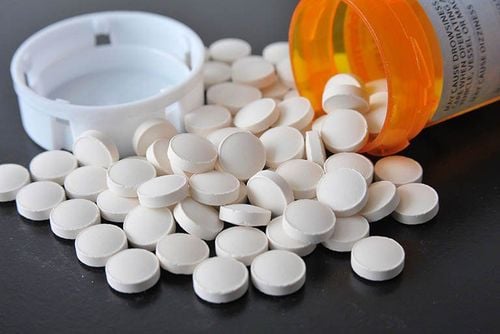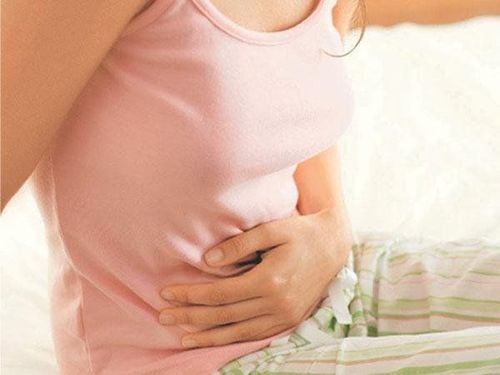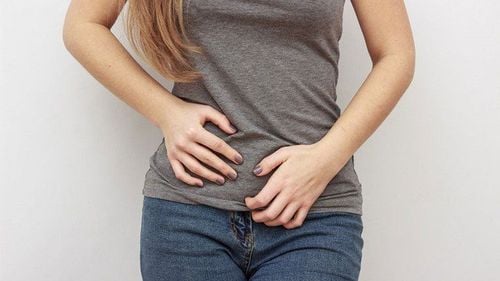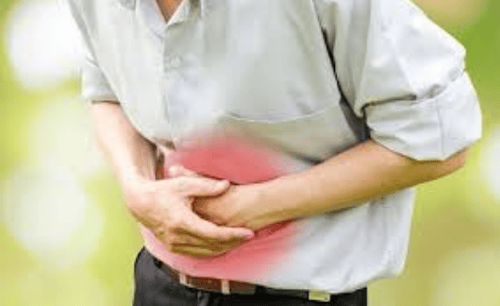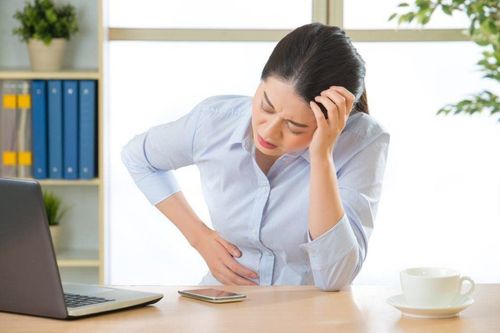This is an automatically translated article.
The article was professionally consulted by Doctor Department of Medical Examination & Internal Medicine - Vinmec Hai Phong International General Hospital.
There are many different types of abdominal pain, each with different causes. This article will identify the types of abdominal pain and the causes of each type, helping us to have the most complete knowledge about abdominal pain.
1. Constant pain in the lower abdomen
This could be one of the symptoms of Irritable Bowel Syndrome (IBS). If you experience constant pain like cramping in the lower abdomen, accompanied by gas, bloating, digestive disorders, constipation or diarrhea, you most likely have Irritable Bowel Syndrome (Irritable Bowel Syndrome). IBS), or "spasmodic colon". IBS is one of the most common digestive disorders today involving the intestines and stomach.
This disease has no specific cause, so treatment is mainly focused on alleviating the symptoms so that the patient has a better life. However, some studies have found that the culprit for IBS is an oversensitive colon.
IBS does not cause weight loss or rectal bleeding, so people can "live with the flood". If you have this condition, you should see a doctor for specific advice, in addition, you can use natural therapies to support disease treatment, maintain a balanced, scientific life, ....
2. Abdominal cramps accompanied by rectal bleeding
Inflammatory bowel disease (IBD) can be the cause of stomach cramps, pain, and rectal bleeding.
IBD is a general term for conditions associated with chronic swelling of the gastrointestinal tract, such as Crohn's disease and ulcerative colitis. These diseases often have very similar symptoms and can be difficult to diagnose.
We should not confuse IBD with IBS (irritable bowel syndrome), because IBD is more serious and rare.
3. Abdominal pain around navel
Gallstone disease is often the cause of uncomfortable pain in the area around the navel accompanied by a dull ache near the shoulder, especially after eating foods high in fat.
For the age group over 40, the risk of gallstones is higher than in the younger group. The reason is due to high levels of the hormone estrogen, especially during pregnancy, so it is easy to develop gallstones.
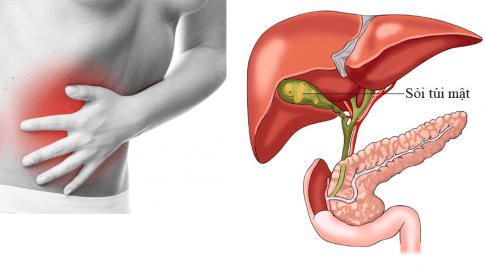
These stones that form for years in the gallbladder are difficult to detect and are usually painless, unless they become lodged in the cystic duct. The result is cramping, or sometimes cyclical pain.
4. Abdominal cramps with bloating
Gastrointestinal ulcers are the main cause of bloating, heartburn, loss of appetite and weight loss, and pain in the lining of the stomach or the first part of the small intestine.
This disease is not caused by stress, but by two main causes, that is, the effect of Helicobacter Pylori (HP) - a bacteria that damages the stomach lining, and overuse of anti-inflammatory drugs. non-steroidal anti-inflammatory drugs (NSAIDs) such as aspirin or ibuprofen. If the patient has a blood test, it is possible to detect the cause of the disease, especially the presence of H. pylori bacteria.
5. Left lower abdominal pain with bloating
If you have sudden pain in the lower left abdomen with bloating and then suddenly the pain stops, it is most likely caused by diverticulitis, small pouches located inside the large intestine.
This is a fairly common digestive disorder and is common in the elderly group. About 10-20% of people with this condition develop symptoms such as excessive bloating, abdominal pain, cramps, and constipation. Diverticulitis is also described as having "potholes" in the large intestine, which is the result of a diet that is too low in fiber.
6. Pain in the lower right abdomen
If there is severe pain below, to the right of the navel, this pain may be due to appendicitis, especially when accompanied by a low-grade fever, inability to pass gas, constipation or diarrhea.
If you have appendicitis, the pain will be more pronounced when walking, breathing deeply, coughing, sneezing, or having some pressure on the abdomen, this time the muscle pain will be worse. According to the National Institutes of Medicine, appendicitis is an inflammation of the appendix that causes pus. This disease often requires emergency abdominal surgery, requiring early intervention, removing the appendix before it ruptures.
If you experience upper abdominal pain, you need to see a doctor to find the exact cause and treat it promptly.
Please dial HOTLINE for more information or register for an appointment HERE. Download MyVinmec app to make appointments faster and to manage your bookings easily.




